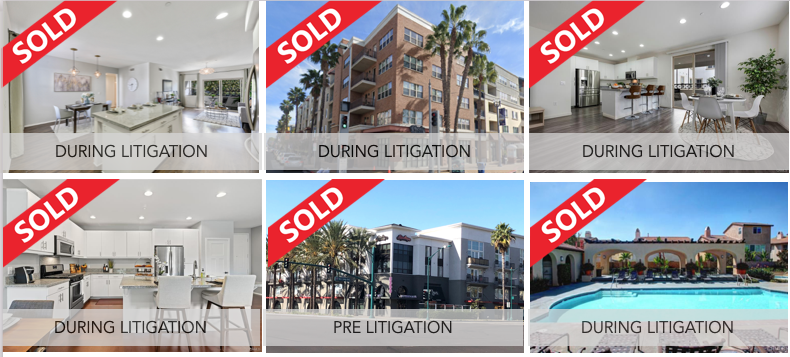I created a prior blog a while back on whether or not selling as “CASH ONLY” was a good idea due to HOA litigation. Make sure you see that blog and watch my video where I interview a lender who deals with litigation loan submissions.
This blog relates to when HOA’s decide to take formal action against their homebuilder for construction defects. There are other types of litigation including when the HOA is the defendant, but we’ll just stick to this type where the HOA is the one seeking compensation from the builder.
In the video above, I cover (3) phases where litigation can affect your condo’s marketability and ability to sell:
- Pre-litigation – formal requests have been made to the homebuilder and the builder has not agreed to the requests. They may have responded with a solution and the association hasn’t agreed to the terms or amount. A dispute now exists and it has been announced to the members of the homeowner’s association. A legal firm may or may not have been retained at this point. If a legal firm has been hired, they usually will write a formal letter to the homeowners.
- During litigation – a formal lawsuit has been filed with the local courts. An attorney is usually retained by the homeowner’s association. A formal letter is distributed to the homeowners stating that litigation has been filed.
- Post litigation – an outcome has been reached from #2 above. In most cases, it’s a settlement and a new letter is created to distribute to the homeowners.
Although many associations will encounter the above as a progression where you complete all 3 above, keep in mind that pre-litigation can result in an agreement reached without having to do a formal filing or the association deciding not to pursue their claim.
All 3 stages above can affect a Real Estate sale:
- Potential buyers can get scared off – when buyers read the attorney letters, formal filing, or even hear verbally about the litigation, it’s often not explained well. This leads to buyers getting scared off in some instances. The buyer who might have been willing to pay the most might be one of them.
- Lenders may decline loans – during litigation in The Domain and Stadium Lofts communities in Anaheim, their real estate sales consisted of many that involved loans. Some lenders were able to do them, and some declined the loans due to the litigation making them more difficult than a condo without litigation. However, a BIG change happened to the way condo loans are done in January 2022. Fannie Mae and other “GSE” lenders have made their condo approval more rigorous. The prior “condo cert” had a questionnaire of one page. The new questionnaire is 8 pages (9 pages if text overflow is needed. This is leading to loans being declined even in post litigation condos.
- You may have to sell for less (or not be able to sell at all.) – You may say, “well, duh…” after reading 1 & 2 above. It doesn’t take a genius to figure out that if you eliminate a signifiant portion of buyers by scaring them off or having them not eligible to obtain financing that you end up with just cash buyers. Furthermore, I’ve seen instances where a condo sold earlier for $480,000 without any litigation being disclosed and the new seller facing litigation tries to sell a similar unit for $480,000 with no luck.
What are the solutions to avoid these risks?
A. Hire an agent who has numerous closings with HOA / builder litigation. They will likely know certain strategies for marketing, how to properly disclose the litigation, and when to disclose. They also know how to properly explain it to potential buyers and their agents. Personally, I try to have discussions with local agents and many liked the way I explained the litigation so much, they asked their buyers to call me or visit my Open House so I can explain it without anything lost in translation.
B. Get the condo approved upfront. The agent in A above likely will have lender contacts who specialize in condo sales. They can obtain the condo approval before marketing the property. While your buyer will be free to use any lender they want, it would be nice to have a “rescue lender” waiting in the wings.
If you have any questions, you can call Edwin Baloloy at 714-501-2732.


